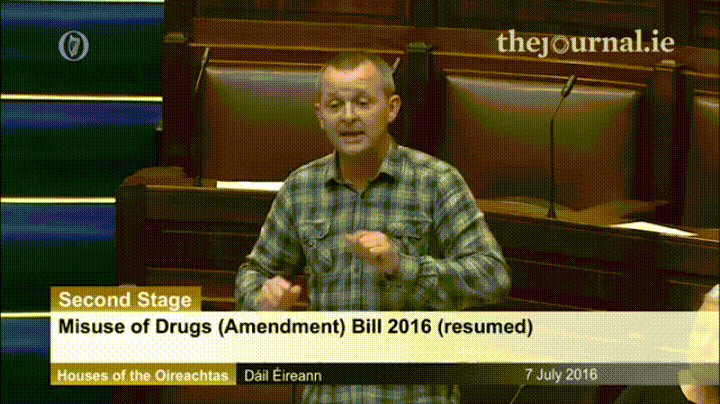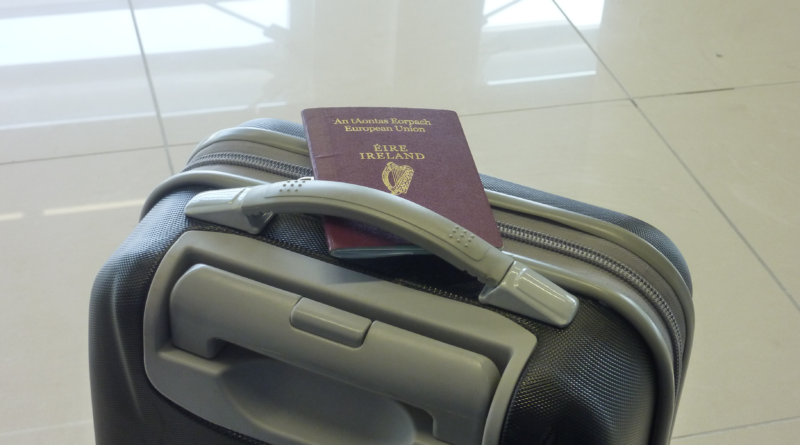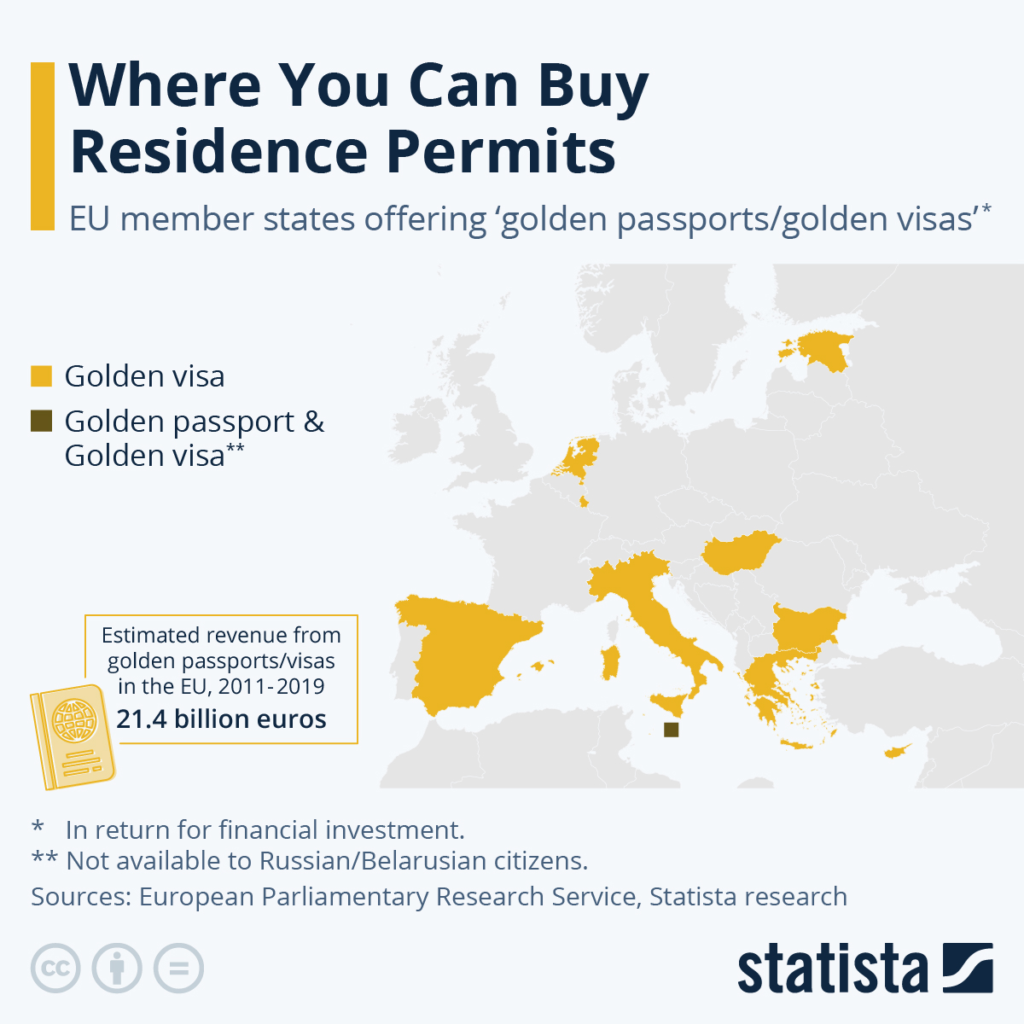Irish Dual Citizenship: Timeline and Costs
I got my Irish dual citizenship two months before the US Election Day. Being an Irish citizen allows me to live and work anywhere in the EU or the UK. After 2016’s Brexit, this makes the Irish the only population with automatic access to both regions. Should my economic opportunity or general safety become non-optimal in the United States, I have the legal right to quickly – and easily – start a new life elsewhere.
I’m going to explain more about why I pursued Irish dual citizenship in my next couple articles. For this one, I’m going to walk you through the financials of securing dual citizenship and my experience with the application process. With online searches surging right now about how you can move outside the US, it sure is a timely topic!
How Much I Spent Applying for Irish Dual Citizenship
I’ll start off with detailing how much money I’ve spent. Read: more like sharing the shock at how little I spent. It’s hard to quantify the value of any specific citizenship or residency. However, you can get an idea by noting how much money someone will slam down to get it. And people do slam money on the table to get this through golden visa schemes.
For EU residency – which is a step below citizenship – the lowest price I’ve seen is €250,000 via Greece’s Golden Visa program. Other EU countries offer visas at higher price points. These can be anywhere from €300,000 (via Cyprus) to €2 million (via Italy). Some Caribbean countries also offer golden passport schemes, if you’d rather that. Ireland’s golden visa ended last year, but before that it required at least €1 million to earn.
Knowing that, spending less than three thousand dollars for mine was a bargain. 😉
I was eligible for Irish dual citizenship thanks to Ireland’s citizenship by descent laws. As long as I had a grandparent born in the Republic of Ireland, I could find a place on the Foreign Births Registry. Since I have two Irish-born grandparents, I was in!
All I needed to do, then, was prove to the Irish government that I had these grandparents. To do this, I needed several documents, notarized ID copies, and confirmation I am not wanted by INTERPOL. (Okay, I didn’t need to prove the last one, but lack of a criminal history is pretty important.)
I worked with a legal firm specializing in dual citizenship cases to make this happen. The following chart lists a detailed breakdown of the costs through them.
Irish Dual Citizenship Total Costs
| Date | Cost | Purpose |
| August 2022 | $225 | Search for grandfather’s birth record |
| February 2023 | $115 | Acquiring grandparents’ marriage certificate |
| “ | $90 | Acquiring grandfather’s death certificate |
| “ | $90 | Acquiring parent’s birth certificate |
| “ | $120 | Acquiring parents’ marriage certificate |
| “ | $325 | Records review |
| September 2023 | $375 | Application package for Darcy |
| “ | $355 | Application package for Gio |
| “ | $395 | Darcy’s processing fee |
| “ | $395 | Gio’s processing fee |
| TOTAL | $2,552.50 |
If you can claim Irish citizenship by descent, the costs can get much lower if you DIY the process. Once you have all needed documents on hand, you’re good to apply. The lowest cost I’ve seen someone do it was less than $700 as claimed by Matt at Expert Vagabond.
If you find the documents yourself or already have them collected, you’ll save yourself at least $640. Because I did not have the documents on hand, nor was I willing to end estrangement with my parents, I went the more expensive route instead. I also paid more because I was getting Irish dual citizenship for two people: I applied together with my brother Gio. We sent in the same ancestry documents, but that carpool approach to expenses ended there. Save another $750 by applying for just yourself!
All that said, the legal firm route might be the best choice for you, too. You’ll have professionals double-check everything is correct and minimize rejection. And I’ll always recommend taking the stress out of the equation, even if there’s more stress to it at first.
Timeline to Irish Dual Citizenship
In a nutshell:
- July 2022 – reached out to legal firm to begin process
- August 2022 – signed agreement with firm and began search for first document
- August-February 2023 – periodic check-ins on how the search was going
- February 2023 – firm began collecting other necessary paperwork from parents and state of Illinois
- February to September 2023 – more of me being pleasantly persistent with check-ins at the firm and check-ins with my brother
- Early September 2023 – the firm has all the documents to prove citizenship!
- September 2023 – I sit down with a notary to certify all of my documents needed. Then, I sent it off to the firm
- September 2023 – the firm sends our citizenship application to Dublin
- October 2023 – Ireland’s Department of Foreign Affairs (DFA) emails me confirming they have my application
- July 2024 – The DFA emails me again to confirm my address; home stretch!
- September 2024 – The DFA emails me to say “Congratulations, your application for Irish citizenship through entry on the Foreign Births Register has been successful”. YYEEEAAAHHHHHHHHHH!!!!!!
Total time: 2 years and 2 months
I first reached out to the law firm about citizenship in July 2022. In August I paid for them to find my grandfather’s Irish birth record. If they weren’t able to find his birth certificate (they did!) then the Irish government would have also accepted his baptismal certificate; births weren’t always formally registered, but you bet your ass the Catholics got ‘em baptized if nothing else!
In the following months I tried a few different avenues to get all my documents together. Extended family members didn’t respond much to me requesting their help, and one aunt outright lied to me about sending a certificate. That was disappointing and a little baffling, but it didn’t stop me. In February, I paid the law firm extra to acquire the documents I needed from the state of Illinois. That’s where my grandparents and parents lived their entire adult lives; also, of course, where I grew up.
Heads up on that:
It still took months for the firm to collect all of these documents together. I’m not sure whether it genuinely takes that long to acquire them, or whether this was because they’re not great communicators. Regardless, I asked for updates every month or two just to keep the ball rolling.
This timeline is short by average standards, but it could have been made even shorter. It mainly dragged on before last September; it took time for the law firm I worked with to respond to me, and then because my estranged parent kept putting off sending docs to the firm.
By July 2023, most of the documents we needed were with the firm. It took another two months until we got the final document for a complete application. That was my mother’s birth certificate, which proved the link between me and my Irish grandparents. That meant I could send in the citizenship applications and be off to the races!
Which meant “hurry up and wait,” as it turns out! We sent everything in the week of September 23, 2023. On July 24, 2024, I received an update from Ireland’s Department of Foreign Affairs asking to verify my address. I did this same day; I learned from immigration forums that it takes more weeks to be officially granted Irish dual citizenship at this stage.
And then, roughly 12 months after I first sent in my application, I got an email from dfa.ie. The subject line? “Application for Foreign Birth Registration Approved”.
WOOOOOOOOOOOOOOOOOOOOOOOOOOOOOOOOOOOOOOOOOOOOO!!!!!!!

Want up-to-date estimates for your Irish citizenship application?
Ireland’s DFA gives you a link with an estimate of the citizenship timeline. It wasn’t accurate for my case, and likely isn’t for others. Instead, I used this thread on Irish citizenship timelines to get an accurate ETA. By far, this site was the most helpful with estimating how long it will take to get approved for Irish dual citizenship. Pay extra attention to anything posted by user jgclancy; they share loads of enthusiasm and extremely knowledgeable information on the application process. To see timelines of other application going back a few years, the same board has The Almighty Spreadsheet. It’s dedicated to tracking application timelines and has loads of timeline data.
(Side note: that is one fantastic spreadsheet. I can say that with authority as a finance writer with many money nerd friends. Can we set up a community meetup between these guys and my personal finance buddies? It’s clear to me we’d get along famously.)
Besides this forum and spreadsheet, I’ve also tried estimating the timeline via questions posed to Ireland’s Parliament. Here’s an example question from last month. Like most I’ve seen, it follows the same general approach of: “hey Foreign Affairs people, what’s the latest with this specific citizenship application?”
To which the Tánaiste and Minister for Foreign Affairs replies: “Hi, I’m responsible for that stuff. We have so much work to do and we are soooo good at doing it. Pay no attention to people’s actual experiences. Anyway, here’s what I can say publicly about that specific application, now let me work in peace”. Which, to be fair, is exactly what I’d expect a politician to say about any delays. I understand the Irish political system already!

My Irish Dual Citizenship Process
I first reached out to said firm in July 2022. I won’t name them here because I didn’t have a great experience with them starting out; they improved later on, but the bad introduction soured any recommendation on my end. But if you’re looking for a legal firm to help, online reviews can go a long way!
When I first started out, I was clear that it would be an application for both myself and my brother. Yes, I wanted this for Gio too because I love him and want what’s best for him. It was also to be strategic. My brother is the undisputed golden child, and I am estranged from my family besides him; I figured my parents would be more willing to send IDs and documents to my legal firm if we framed it as something for Gio. (Two of the documents you need are your parent’s birth certificate and a notarized copy of your parent’s ID.)
This estrangement is also why I worked with a law firm to secure citizenship. I liked having a neutral third party act as a buffer between my parents and I.
I’ll note here that other estranged children have claimed success with their Irish citizenship applications; from what I’ve read, it’s possible to still secure it this way via additional notarized documents explaining the estrangement and, thus, the absence of certain required records. For my personal application, I simply didn’t want to risk it if I didn’t strictly have to. So, I instead added my brother to my application with the belief they’d send documents in for him. Long story short, that gamble (eventually) paid off.
Certifying Your Witness
Other than that complication, I think my application process was pretty straightforward. Go on a scavenger hunt to get all your records together. Next, fill out the correct form(s) in a correct manner. Finally, mail it to Ireland’s Department of Foreign Affairs (DFA) for review. The most difficult part of applying via descent is getting a certified witness for your documents. This person has to review your photos and your ID copies. Then, they sign or stamp them affirming that you are who you say you are.
Your witness has to be someone from a specific profession. Ireland provides a list of acceptable ones. These include notaries, cops, teachers, nurses, and, as it’s Ireland, clergy members. I used a notary for mine; one of my coworkers is a notary and could take care of that for me. My brother, a college student, used one of his professors.
Hopefully this isn’t a surprise, but Ireland always contacts your witness directly to confirm everything’s in order. Contacting your witness is one of the final steps towards approval for citizenship. If your witness gets contacted, that’s a great sign the process will wrap up soon! It wasn’t long after my coworker heard from them when the DFA contacted me about final steps (address verification). Then, about a year after they received the application, Ireland officially granted me citizenship!!!
Keep an eye out for my next article, where I write the details about my path to Irish dual citizenship and any tax concerns. Til then, Erin go bragh!
Cover image credit: via Wikimedia Commons
More articles



Wow! This was so helpful. I am feeling very down since I am also estranged from my grandmother and have no idea how I’ll be able to get her
ID/passport notarized. Happy to know it’s not uncommon and I’ll still have a chance! Thanks!
(This is a really late response but:) Sure thing Eden! I think r/irishcitizenship is a great resource on this; a recent thread here is especially illuminating. Best of luck on applying!
Pingback:6 Reasons I’m Chill with Tariffs Wrecking My Investments - We Want Guac